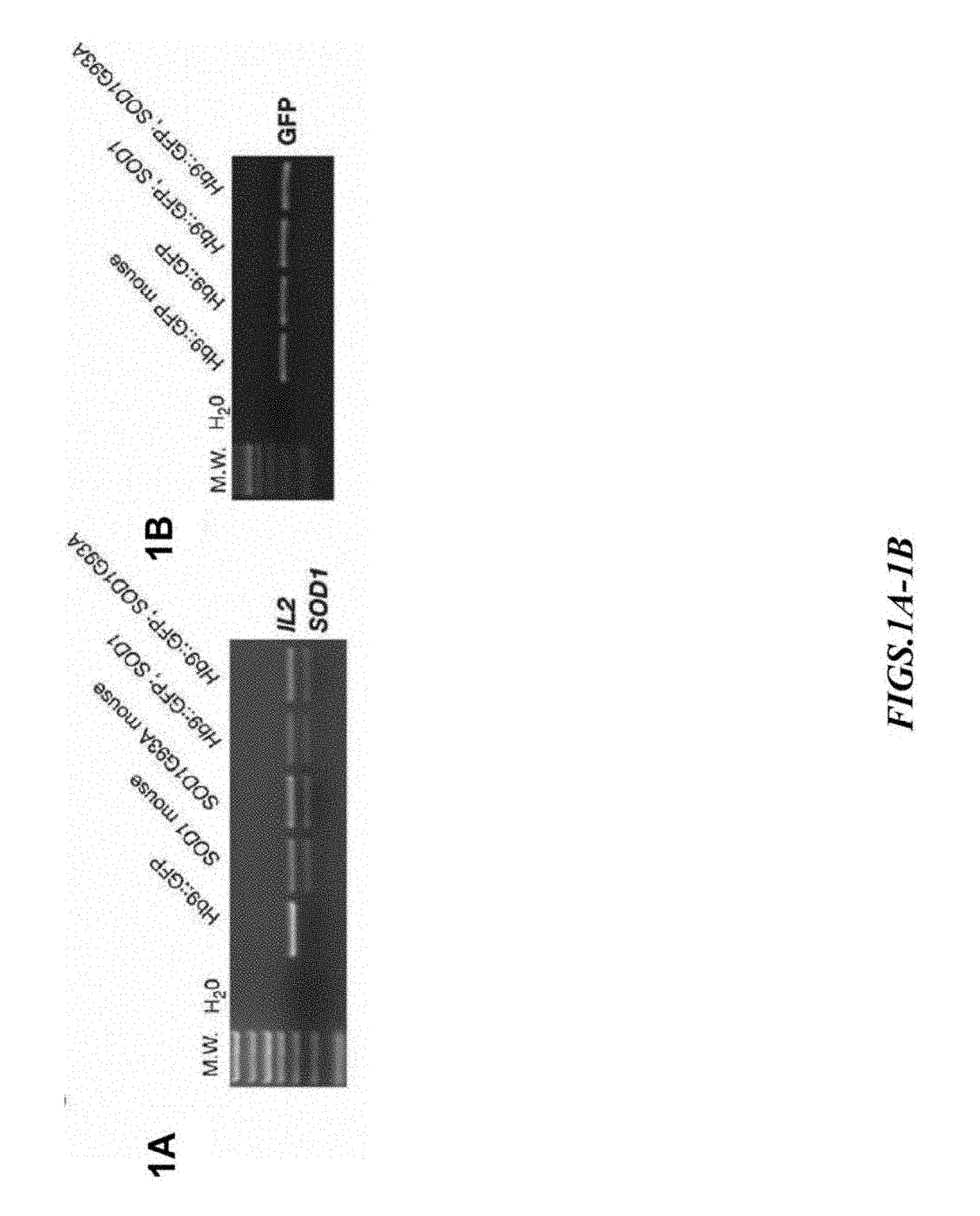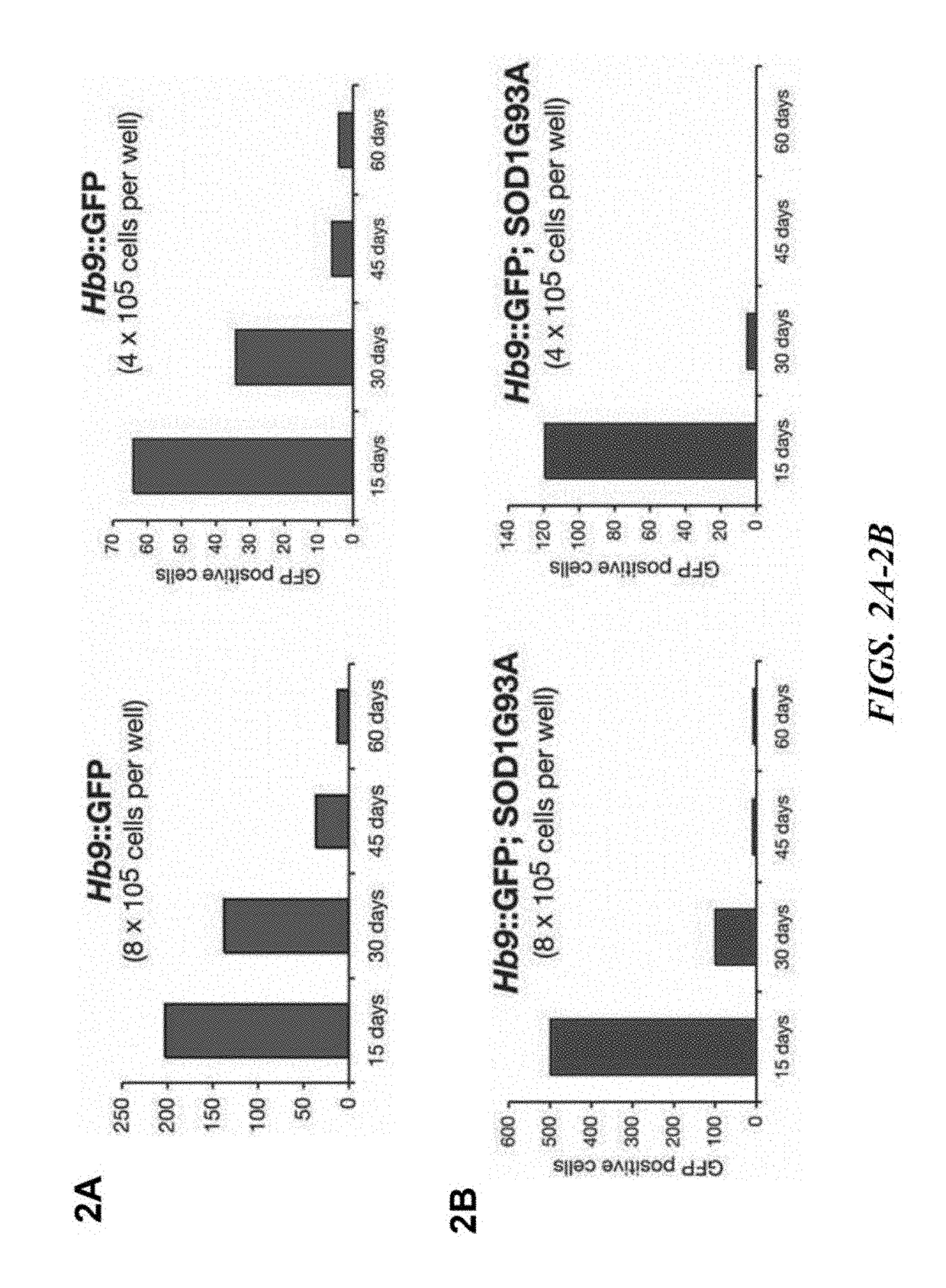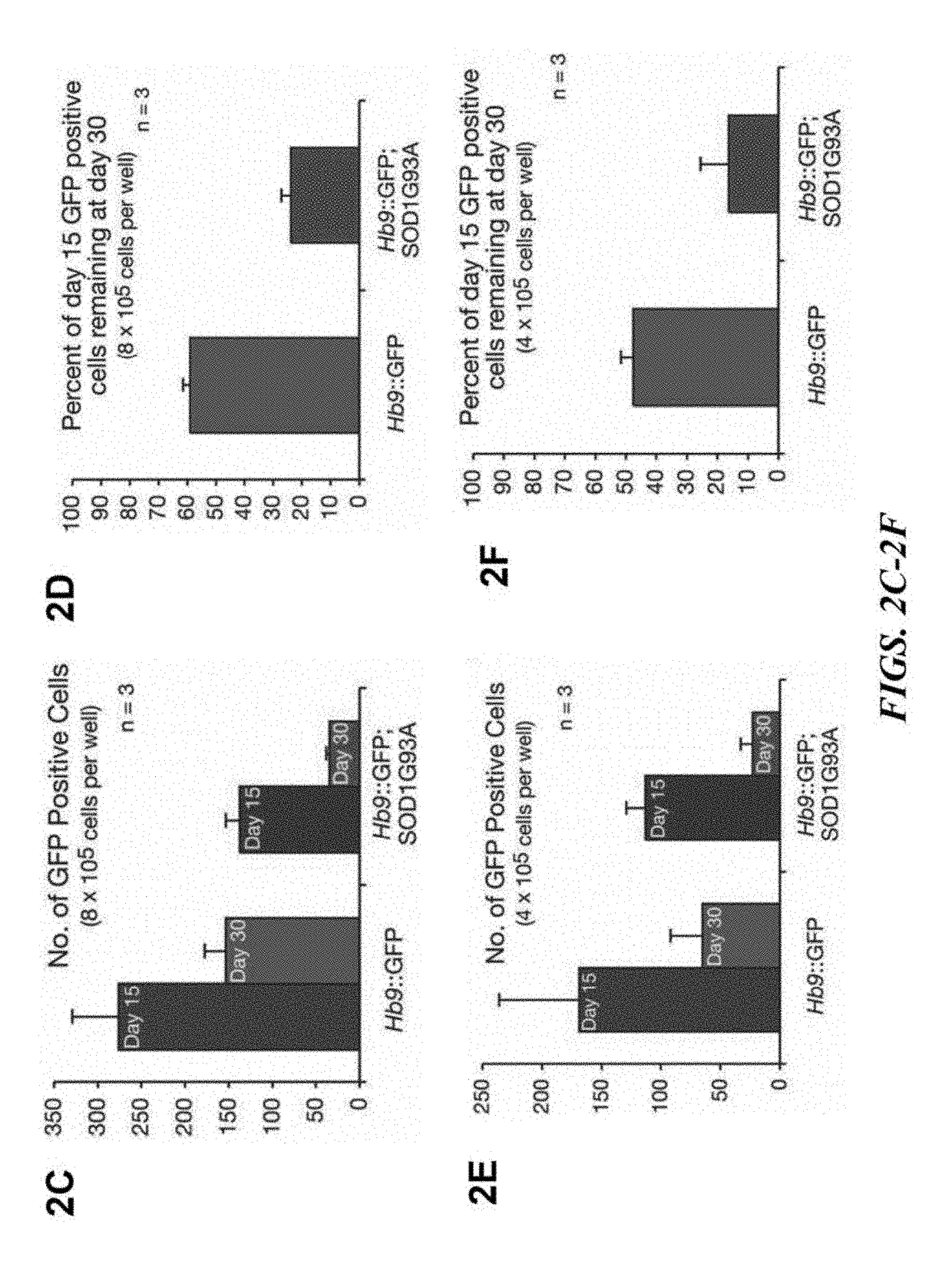Neurodegenerative diseases and methods of modeling
a technology applied in the field of neurodegenerative diseases and methods of modeling, can solve the problems of not identifying which cells are involved, and experiments cannot address the direct effect of cellular interactions with motor neurons in the disease, so as to promote the survival of motor neurons and prevent cell signaling
- Summary
- Abstract
- Description
- Claims
- Application Information
AI Technical Summary
Benefits of technology
Problems solved by technology
Method used
Image
Examples
example 1
n of ES Cell Lines from the SOD1G93A ALS Mouse Model
[0236]Embryonic stem cell lines were derived by crossing hemizygous mice carrying either the pathogenic (mutant) SOD1G93A transgene or the non-pathogenic (wild-type) SOD1 transgene (Gurney et al., 1994) with hemizygous mice carrying a transgenic reporter gene in which green fluorescent protein (GFP) expression is controlled by promoter elements from the Hb9 gene (Hb9::GFP) (Wichterle et al., 2002). The Hb9 gene encodes a homeodomain transcription factor that is expressed in postmitotic motor neurons (Arber, S. et al. Requirement for the homeobox gene Hb9 in the consolidation of motor neuron identity. Neuron 23, 659-74, 1999; Thaler, J. et al. Active suppression of interneuron programs within developing motor neurons revealed by analysis of homeodomain factor HB9. Neuron 23, 675-87, 1999). This Hb9::GFP transgene provides a marker for the differentiation of ES cells into motor neurons (Wichterle et al., 2002). Blastocyst stage embry...
example 2
n and Characterization of Motor Neurons by In Vitro Differentiation of SOD1G93A ES Cells
[0238]To determine whether pathogenic properties associated with ALS can be recapitulated in vitro, we generated motor neurons by differentiating the transgenic ES cell lines as previously described (Wichterle et al., 2002). Briefly, ES cells were dissociated into a single cell suspension, allowed to spontaneously aggregate into embryoid bodies (EBs) over 48 hours and then treated with retinoic acid (RA) and soluble Sonic Hedgehog (Shh) protein1 (Wichterle et al., 2002) for 5 days.
[0239]We found that the SOD1G93A genotype does not interfere with the initial specification or differentiation of motor neurons, as no significant qualitative or quantitative differences were observed in the differentiation of the three cell lines. GFP expression in EBs derived from the different cell lines, including SOD1G93A, first appeared 5 days after treatment with Shh and RA (data not shown). Two days later, when ...
example 3
G93A Genotype Affects the Survival of Motor Neurons in Culture
[0241]ALS is a late onset, progressive neurodegenerative disease, and mice carrying the human SOD1G93A transgene develop symptoms as a consequence of motor neuron loss after several weeks. Therefore, it seemed possible that motor neurons derived from ES cells might display neurodegenerative properties only after they have been maintained in culture for a prolonged length of time. To determine the period of time that ES cell derived motor neurons can survive in culture, we dissociated day 7 Hb9GFP and SOD1G93A EBs and plated the resulting mixture of GFP positive and negative cells at two different densities in the presence of neurotrophic factors (Wichterle et al., 2002) (FIG. 2). We observed that the number of GFP positive cells decreased precipitously during the first two weeks, and then continued to decrease over the following weeks. However, GFP positive cells could still be detected in both HB9GFP and SOD1G93A derived...
PUM
 Login to View More
Login to View More Abstract
Description
Claims
Application Information
 Login to View More
Login to View More - R&D
- Intellectual Property
- Life Sciences
- Materials
- Tech Scout
- Unparalleled Data Quality
- Higher Quality Content
- 60% Fewer Hallucinations
Browse by: Latest US Patents, China's latest patents, Technical Efficacy Thesaurus, Application Domain, Technology Topic, Popular Technical Reports.
© 2025 PatSnap. All rights reserved.Legal|Privacy policy|Modern Slavery Act Transparency Statement|Sitemap|About US| Contact US: help@patsnap.com



